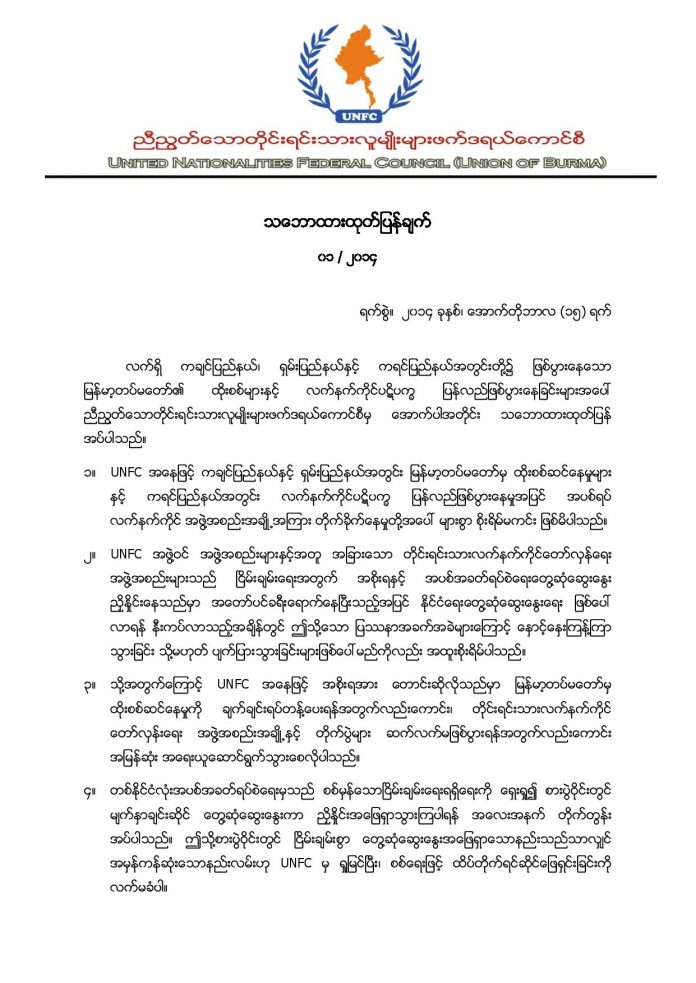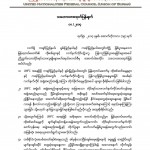“If the government really wants to see [the signing of a] nationwide ceasefire, wants it and has [a] desire for it, it [the government] should not be launching such attacks; it needs to stop,” said Khun Oo Reh.
Khun Oo Reh continued that engaging in face-to-face talks is the best technique to establish peace in Burma, and that the current government needs to deeply consider UNFC’s request, and halt all offensives.
“[The government] needs to stop the offensives immediately. If [it] does not stop, it will impact the peace [process] that we are working hard for. Both sides [government and non-state armed groups] need to be very patient,” said Nai Hongsar, UNFC Vice-Chairman (1).
The UNFC released a five-point statement on October 15th, calling for the immediate halt of all government offensives currently taking place in Kachin, Shan, and Karen states.
In the council’s statement, the UNFC addresses its concern regarding current fighting between government and ethnic armed forces, rejecting the government’s technique of engaging in combat to solve the conflict, instead urging both sides to come to the table for face-to-face peace talks to find a solution for peace.
The UNFC’s statement goes on to urge government and respective organizations to maintain patience and Metta, and act with honesty and transparency, until lasting peace is achieved; such are the hopes for all ethnic people and people throughout Burma.
Sixth round peace talks between the Union Peace-making Working Committee (UPWC) and the Nationwide Ceasefire Coordination Team (NCCT) were held in the last week of September, but ended with the two groups failing to reach agreement on any points discussed. Immediately following the talk, fighting broke out in Karen and Shan states, with fighting currently ongoing.


